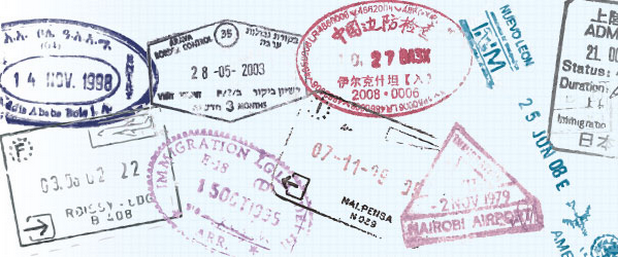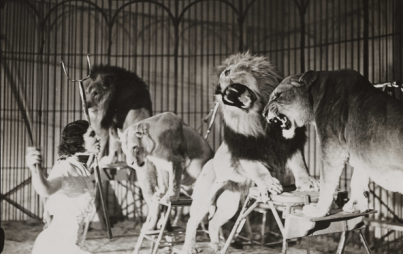
theorbital.co.uk
“That’s something really Brazilian to hate,” my therapist said. She was watching my reaction carefully so she could proceed to do her job. At this point she was grasping at straws and I was considering leaving therapy for good.
I am what sociologist David C. Pollock calls a "third culture kid" or TCK, which he defines as “a person who has spent a significant part of his or her developmental years outside the parents’ culture.” He further speculates that “the TCK frequently builds relationships to all of the cultures, while not having full ownership in any.”
My therapist has been digging into my childhood traumas, trying to find some self-hatred of my own nationality so we could talk about how I am afraid of settling anywhere because I moved around so much in my life. When I told her about my weekend and how a get together turned into a boring, drunken singing circle, with the bonus of shitty guitar playing, she snatched at the opportunity like a . . . therapist gunning after a runaway client (me).
She was right about me running away: I stopped seeing her a few weeks later. She was also right about my fears of planting my feet and calling any space my own and creating new bonds, but I doubt my dislike for bad singing was a tangible representation of that.
My family is bi-cultural (Colombian and Brazilian) and we moved around a lot. I already co-existed in a space where feijoada and arepas were served as family meal staples. We then moved to the USA and then Switzerland; in short, I've experienced a lot of cultures that are decidedly not my own.
* * *
“Ay Dios mio!” exclaimed one of my great-aunts. “How big you are!” She hugged me in a painful, loving way – like relatives do when they realize you are no longer five years old. In fact, I was about 16 when she told me to sit down and eat empanadas, arepas, ajiaco and anything else Colombian she thought of making for my family’s rare visits to Bogotá.
Today I regret not enjoying those visits more. As a child and then a teenager, I felt awkward and out of place beside a big family I rarely saw, trying to learn about a culture that was supposed to be—and is in many ways—mine. To the despair of my Colombian mother, who is stereotypically reminiscent of Sofia Vergara’s character Gloria in Modern Family, I rejected the nationality for a long time and often felt like the Other—both in Colombia and in the other countries I lived in.
I love Bogotá; the house in Campania was very quaint and welcoming. In those visits we were never alone, relatives were always there to chat and drive us anywhere we wanted to go. In Chia, with my uncle’s family, the air was cold and smelled of pine trees and barbecue. We had arepas—a flat corn flour bread filled with cheese—and roscón—a sweet circular bread with guava or dulce de leche inside and Colombian hot chocolate for breakfast.
But as Pollock so cleverly speculated, despite these fond if confusing Colombian visits and memories, I've never been able to truly claim its culture as my own. Not completely.
* * *
I watched the boys in my school shovel rice and beans onto their lunch plates, ravenously gulping it down without chewing properly as soon as they sat down. Rice and beans—I have stared at this combination on my plate more times that I can count and wondered what is so damn great about it. I’ve heard Brazilians complain about being abroad and not having rice and beans. This notion is so incredibly odd to me: why would you want food from home when you’re traveling and getting to know a new culture?
I don’t hate rice and beans. I just don’t get the fascination around it. But Brazilians? They really love the stuff.
In the same way that I watched people eat rice and beans—from the outside, not quite understanding it—I also watched my friends go out during Carnival when I was 17 years old. I had just moved back to Brazil and my friends invited me to come along . . . but just like in Colombia, I felt painfully out of place amid all the cheery music and the samba dancing I have never quite grasped how to do.
So instead I turned on the air conditioner and settled down in my bed with a book. To this day, that’s how I spend that famous Brazilian carnival. Along with fielding the horrified looks that come with "hating the biggest party on the planet" that make me feel even more at odds with my nationality.
TCKs “have an understanding that there is more than one way to look at situations that they are exposed to or experience [and can perceive] cultures that are homogenous in their belief system (…) as offensive or useless.”
I am subject to culture shock in my own country.
* * *
No one can guess my accent, not even me. It changes depending on who I am speaking to. Sometimes I sound more British, from my time studying in the UK. Sometimes I sound more American, from learning how to speak English with my American cousins. Sometimes I sound more Latina (usually when I am angry). My accent is undefinable, so it adapts itself according to my surroundings.
As a hairy Latina in the USA, I used to be teased for my mustache and my bushy eyebrows. A blonde, blue-eyed girl laughed at my big lips and asked if it took a long time to put on lipstick.
We moved to Switzerland when I was 15 and just starting high school. Sadly, Geneva was cold and unwelcoming to our family; there was a lot of hostility against us living there. I remember my French teacher making me cry because she believed I had cheated on my homework because it was too well written. But I also remember the sweetest old man giving up his seat to me in the tram, insisting that I sit down. That act of kindness meant a lot during a time I was being Othered.
Then, when I started university in Sheffield, UK, they called me the Mexican. I accepted it at first—I was in a new country after all and I didn’t want to make a fuss—but soon, it became emotionally damaging. I am not Mexican, I am Colombian and Brazilian. It took me a few years to notice that my culture had been generalized and belittled.
Paradoxically, I feel that being a third culture kid has made me more accepting of foreign cultures and less accepting of my own. Unlike my therapist, I don’t think I hate my Brazilian-ness.
Pollock suggests that I have “difficulty adjusting to cultures where the only culture that is discussed or focused on is itself,” but I would go further: I hate the idea of having a to choose a singular culture of my own, of being told I should know how to samba.
Or miss rice and beans when I'm traveling.




